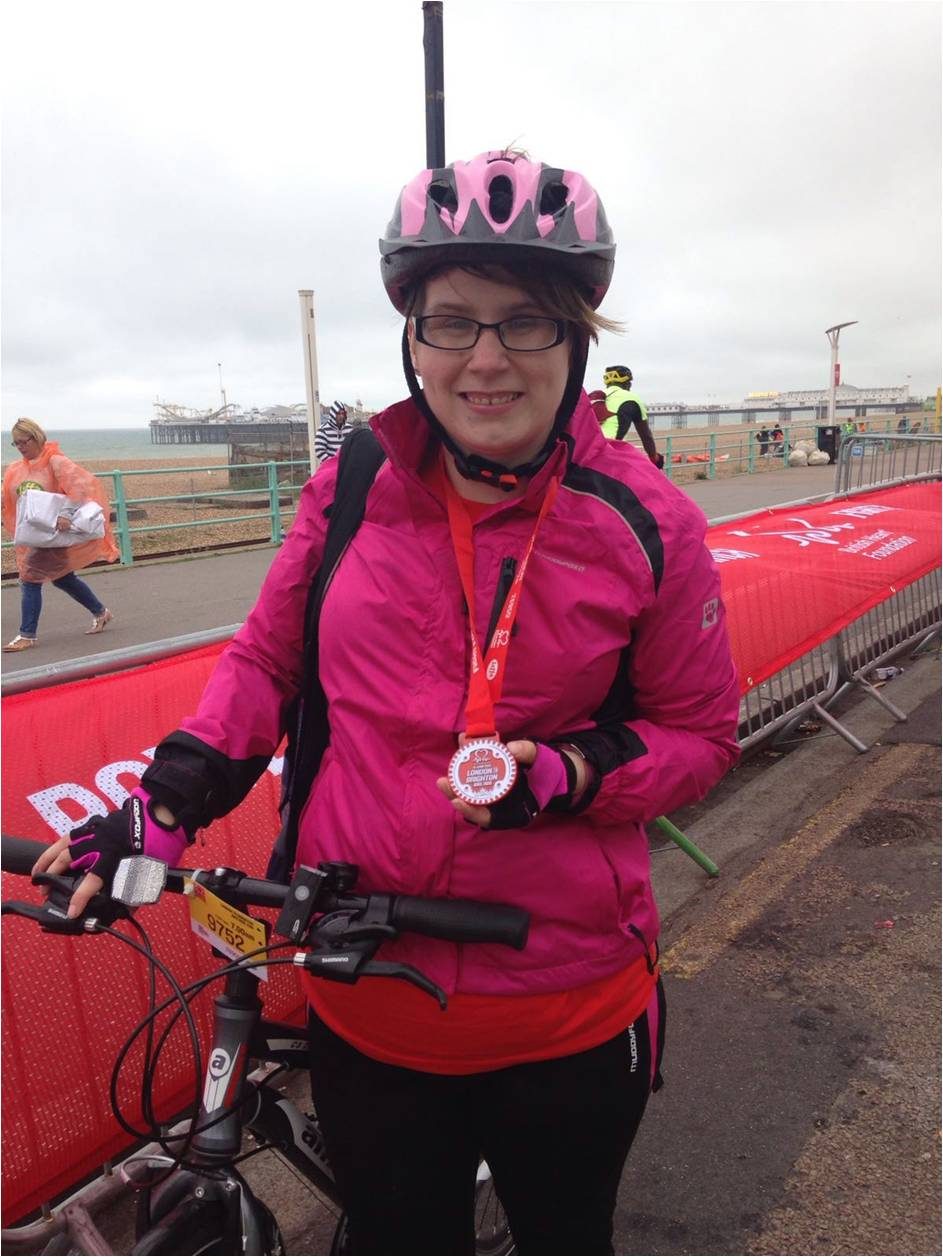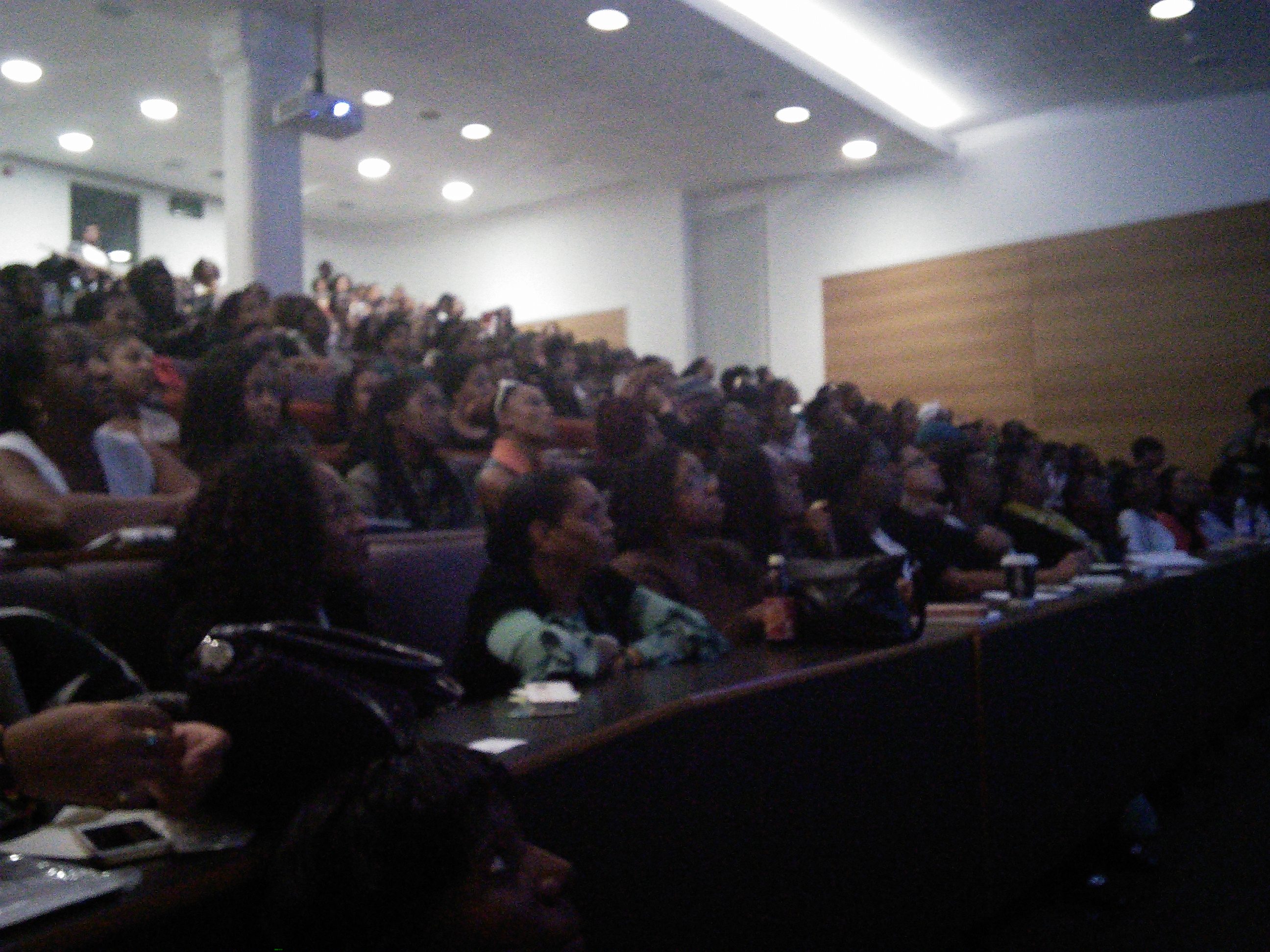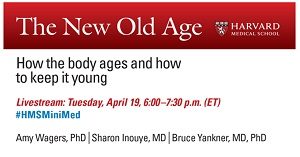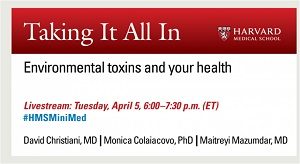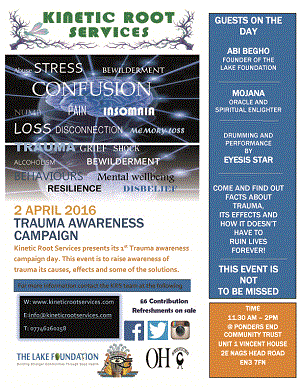A couple of weeks ago we listened live to Harvard Medical School’s Mini Med seminar on ageing. This was a very informative event featuring experts in the field Amy Wagers Professor of Stem Cell Regenerative Biology; Sharon Inouye, the Director of the Hospital Elder Life Program and Professor of Medicine; and Bruce Yanker, the Co-Director of the Paul F. Glenn Centre for the Biology of Ageing. Together they explained how the body ages and how we can keep it young and healthy.
The event started with an introduction by Amy Wagers who explained that ageing is a collection of physical and behavioural changes that take place as an individual gets older. She stated that ageing is the biggest risk factor for many diseases and the challenge that the medical field faces is how to promote healthy ageing.
When thinking about aging it was stressed that we have to think of a person’s health span as opposed to their life span. A person’s health span is the number of healthy years of life they experience and currently the general population’s life span has increased but their health span is relatively short and we need to do more research to determine how we can effectively increase a person’s health span; we don’t want people to have a long life span but have a poor quality of life because their health span is short.
Amy stated that we need to understand the cellular, biochemical and molecular basis of ageing and therefore understand how age-related diseases develop so that we can target these diseases. Amy stressed the importance of identifying predisposition to age-related diseases as there has been an explosion in these diseases over the past 15 years, mostly because we have more elderly than ever before.
Amy explained that ageing is a complex process where many biological mechanisms interact, these include loss of protein function, reduction in the communication between organs, the loss of the ability to regenerate cells after injury, metabolic dysfunction and DNA defects, just to name a few. She said that there is hope that we can target the biological causes of ageing to prevent and reverse age-related disease. Amy stressed that there are two very important factors in preventing age related diseases and these are: diet and exercise.

We then heard from Sharon Inouye who explored the clinical aspects of ageing. She stated that some of the main issues with ageing are: illness, disease and medications affect older adults differently; older adults are more likely to have multiple health conditions; we’re in a stressful society and stress results in a reduction in our physiological reserve so our body is less able to deal with ageing; falls are the leading cause of death in the elderly; many eldery experience a significant decline in brain function and finally we don’t have enough geriatricians to treat older people. Due to all of these issues we need to find ways to ensure that people age well. She stated that an important part of addressing these issues is ensuring that older people maintain their cognitive health by: encouraging people to be physically active (this is the most important), reducing cardiovascular risk factors, looking at medication management, keeping the elderly socially and intellectually active and ensuring they get enough sleep.
Finally we heard from Bruce Yankers who spoke about brain function in the elderly. He wanted to answer the question: how do people who are healthy lose neurons? He stated that many older people retain memory and cognitive function but others lose this, why? He explained that biological processes in the brain decline with age and there are a number of genes involved in this process. REST is a gene regulator that appears in the ageing brain and disappears in people with Alzheimer’s Disease. REST controls many genes involved in memory. It keeps cells alive and regulates genes involved in neuron function. REST proteins are protective against Alzheimer’s Disease and thus prevent loss of neurons. He explained that some people can withstand Alzheimer’s lesions and do not go on to develop dementia, why? It seems to be REST proteins that are protective in these situations.
Finally Bruce explained that research has suggested that the strength and quality of relationships dictate how well people age. It was found that how happy people are is important in ageing healthily. Specifically how happy people are in marriage by 50 seemed to be a good indicator of how well they will age. Therefore it’s important that people control their stress levels and strive to be happy.
This was a very interesting seminar and gave us a lot to think about with regards to how to promote healthy ageing. A key theme of each talk was the power of exericse and we’ll continue to encourage the public to keep active.
We’d like to thank Harvard Medical School for organising this seminar series and making it as accessible as possible by broadcasting it live on the internet. You can find out more about this seminar series, read the lecture notes and watch







